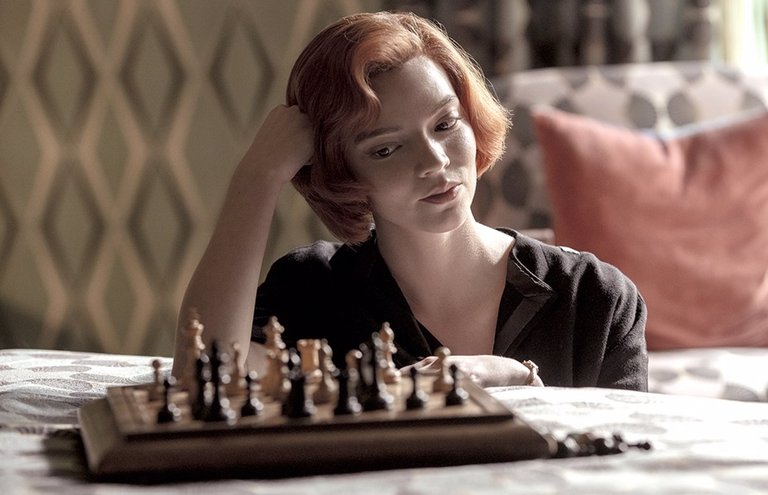
⇾En los deportes pienso que la psicología es algo fundamental, ya sea en el fútbol, béisbol, basquet, tenis, natación, etc. Pero en el ajedrez también lo es igual de importante, conozcamos por qué.⇽
【Por qué es importante la psicología en el ajedrez】
►Cómo ya todos sabremos, el ajedrez es un juego, o mejor dicho, un deporte exclusivamente (casi) completamente intelectual, sería lógico pensar que tiene mucha cercanía con la ciencia y la mente en general, en la batalla sobre el tablero interviene mucho los factores psicològicos. Ya sea dentro o fuera del tablero de juego, y por si no lo sabían de esto han escrito muchos ajedrecistas muy reconocidos, porque es algo que el que empiece a jugar ajedrez debe saber plenamente, antes de adentrarse en un mundo tan retorcido y complejo cómo lo es el Ajedrez.
Los aspectos psicologícos del ajedrez toman una gran importancia en antes de una partida, en medio de una partida, o hasta inclusive después de una partida, pero... ¿por qué? a veces en medio de un torneo debemos tener en cuenta algunos factores técnicos, y algunos otros plenamente deportivos. En el ajedrez ocurre que tal vez en medio de una partida nuestro contrincante nos ofrece tablas y nosotros debemos estar totalmente calmados y pensar correctamente la mejor decisión para no entrar en una crisis nerviosa, o tal vez a veces estamos en medio de una posición ligeramente ventajosa lo cuál nos pone a pensar mucho y nos obliga practicamente a querer ganar sin ningún tipo de escrúpulo. También nos ocurre a la hora de estar en medio de una partida y estar perdiendo, eso nos puede derrumbar tanto emocional cómo físicamente y debemos estar preparado para todo tipo de ocasiones.
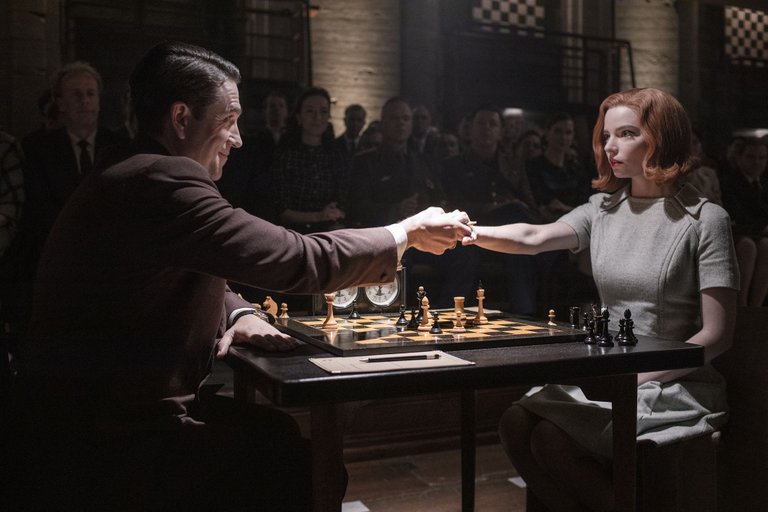
Algo que ocurre muy seguido en los ajedrecistas es sentirnos bajo presión por miradas del público (sí lo hay) lo cuál es completamente normal y es algo con lo que debemos lidiar si queremos jugar al juego ciencia presencialmente. Algo que influye muchísimo es nuestro estado de ánimo, si nos encontramos mal, triste, con dolor, preocupaciones, etc. No jugaremos para nada una buena partida, al contrario... Para jugar al ajedrez debemos estar calmados y en un buen estado de ánimo para poder dar nuestro máximo sin importar ningún tipo de problema, tampoco podemos dejarnos llevar por la euforia ni mucho menos, cómo lo comenté el ajedrez es un juego basado plenamente en la lógica por lo cuál debemos ser modestos y saber cómo reaccionar a cualquier tipo de situación posible.◄
Puntos relevantes en la psicología de un ajedrecista
▶Control de las emociones: Para lograr rendir 100% al ajedrez es importante que sepanos controlar nuestras emociones y sentimientos durante una partida de ajedrez, eso implica las personas excesivamente nerviosas, compulsivas, expresivas, desenfrenadas, indecisas, agresivas... Están totalmente desubicadas y no servirán para el deporte ciencia, ya que para lograr tener el mejor resultados debemos contar con una personalidad fría sobre el tablero, pues muy rara vez perderemos por una explosión emocional que sin duda es lo peor que existe.◀
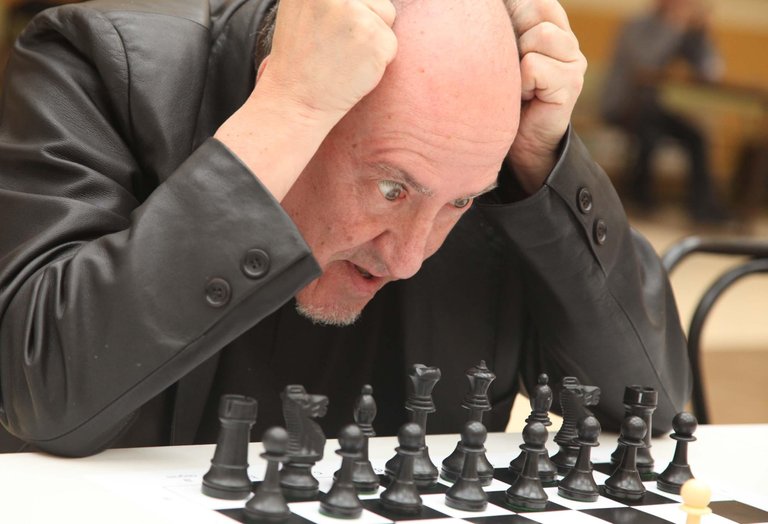
▶Ajedrez, un juego plenamente individual: ¿A qué me refiero con esto? Cuándo perdemos una partida de ajedrez, no podemos echarle la culpa a absolutamente nadie más que a nosotros, ya que muchas veces nos "sentimos mejor" culpando a otra persona o situación ocurrida para excusar nuestra derrota, debemos ser conscientes y aceptar nuestra derrota y más importante aún, nuestra culpa. Debemos sentirnos responsables plenamente de lo que jugamos no fue lo correcto y que sin duda, debemos proponernos mejorar para un futuro, tampoco debemos sentirnos unos "dioses nórdicos" a la hora de ganar una partida, ya que si la ganamos, fue gracias a los errores de nuestro rival que a las habilidades de nosotros, por lo tanto... El ajedrez ten enseña a ser una persona modesta desde los dos puntos de vista, lo cuál nos dejará una lección de por vida.◀
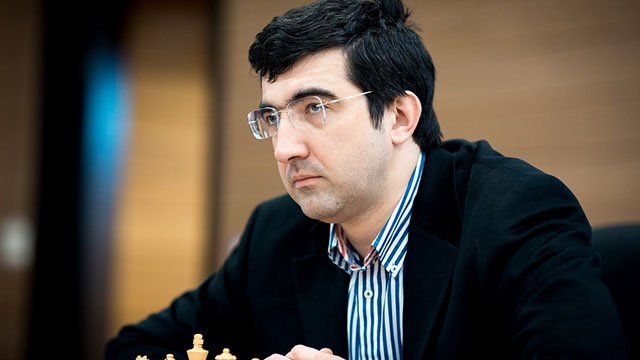
▶Nuestra personalidad: Es un punto muy importante del que debemos hablar y aclarar algunos puntos, si nosotros somos personas con una personalidad agresiva, sin empatía alguna, eso también puede repercutir en nuestras partidas del juego ciencia, ya que jugaremos de manera desenfranada con un odio por dentro, cosa que no hace bien. El Gran Maestro Rubén Fine psicoanalista del tema, ha hablado con algunos ajedrecistas que sufren de odio hacia sus padres, y cuentan que lo pagan con los rivales en los tableros del ajedrez, cosa que puede ser tanto beneficiosa cómo algo muy dañino.◀
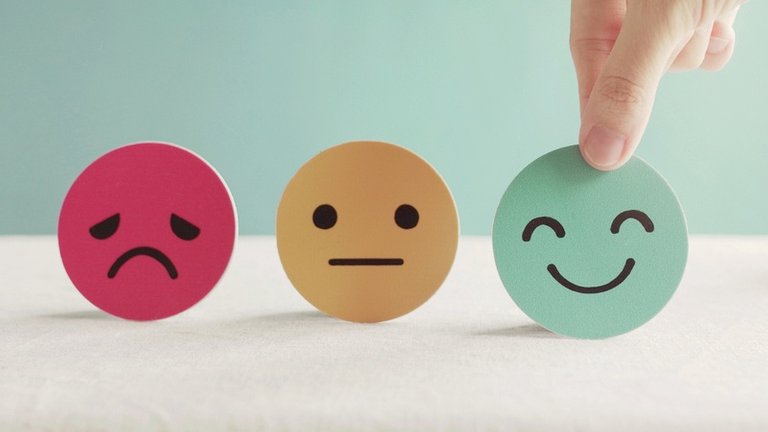
▶Prepararnos mentalmente: Antes de cada situación que se nos pueda presentar, debemos estar plenamente preparados para cualquier ocasión que se nos pueda presentar, ya sea para perder, ganar, empatar una partida etc. Hablaré bajo mi experiencia en ajedrez de alto rendimiento, por ejemplo mis entrenadores me han enseñado a no sentir nervios con ejercicios de respiración y con tener confianza en nosotros mismos, también debemos de sentirnos cómodos con nosotros mismos y preferiblemente no estar atravesando ningún tipo de problema externo al ajedrez. Antes de cada torneo debía mentalizarme y sentirme bien conmigo mismo y con el jugador que irá a batallar contra los demás rivales, tanto así que durante el torneo, debía intentar no hacer ningún otro tipo de cosas que puedan desconcentrarme del torneo, eso significaba intentar no salir y centrarme nada más que en el ajedrez.
A la hora de perder una partida importante (me pasó en diferentes ocasiones) me sentía bajo presión de ganar obligatoriamente, si no lo hacía, lamentablemente quedaba en una peor posición o simplemente no ganaba la partida, fue algo muy duro ya que te derrumba emocionalmente, es algo fuerte de afrontar y que sin duda debes verle siempre el lado positivo a las cosas ocurridas, y no dejarte llevar por las adversidades. Igualmente a la hora de ganar una partida importante, debía mantener la compostura y no dejarme llevar por la euforia.◀
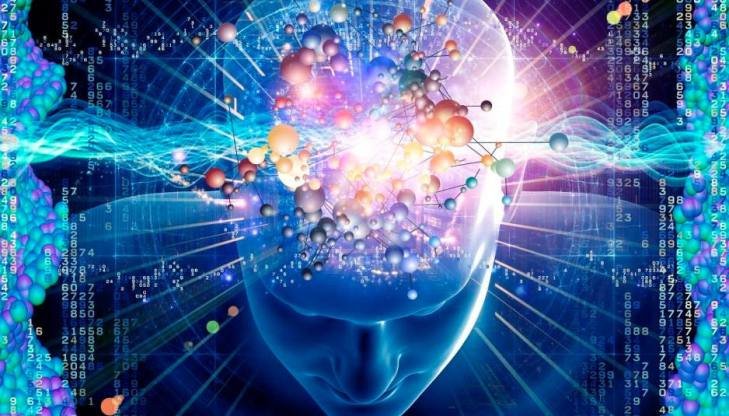
【Pequeña conclusión】
▶Por más que queramos introducirnos en este hermoso mundo del ajedrez, debemos tener muy en cuenta nuestro nivel emocional y psicológico es una de las cosas más importantes! Sin estar psicológicamente preparados, no serviremos para nada, y sencillamente no es la idea... Espero les haya servido y que entiendan un poco más sobre lo hermoso de este mundo, el AJEDREZ.◀
ENGLISH

⇾In sports I think that psychology is something fundamental, whether in soccer, baseball, basketball, tennis, swimming, etc.. But in chess it is just as important, let's know why.⇽
【Why is psychology important in chess】
►As we all may already know, chess is a game, or rather, a sport exclusively (almost) completely intellectual, it would be logical to think that it has a lot of closeness with science and the mind in general, in the battle on the board intervenes a lot of psychological factors. Whether inside or outside the game board, and in case you did not know it, many well known chess players have written about this, because it is something that anyone who starts playing chess should know fully, before entering into such a twisted and complex world as the Chess.
The psychological aspects of chess take a great importance in before a game, in the middle of a game, or even after a game, but... why? Sometimes in the middle of a tournament we must take into account some technical factors, and some other fully sporting ones. In chess it happens that maybe in the middle of a game our opponent offers us a draw and we must be totally calm and think correctly the best decision not to enter into a nervous breakdown, or maybe sometimes we are in the middle of a slightly advantageous position which makes us think a lot and forces us practically to want to win without any scruple. It also happens to us when we are in the middle of a game and we are losing, that can collapse us both emotionally and physically and we must be prepared for all kinds of occasions.

Something that happens very often in chess players is to feel under pressure by public stares (yes there are) which is completely normal and is something we must deal with if we want to play the game of science in person. Something that influences a lot is our state of mind, if we feel bad, sad, in pain, worried, etc. We will not play a good game at all, on the contrary... To play chess we must be calm and in a good mood to be able to give our maximum regardless of any kind of problem, we can not get carried away by euphoria or much less, as I said chess is a game fully based on logic so we must be modest and know how to react to any possible situation.
Relevant points in the psychology of a chess player
▶Control of emotions: In order to achieve 100% chess performance it is important that we know how to control our emotions and feelings during a chess game, that implies people who are excessively nervous, compulsive, expressive, unbridled, indecisive, aggressive.... They are totally misplaced and will not be useful for the sport science, since to achieve the best results we must have a cold personality on the board, because very rarely we will lose because of an emotional explosion, which is undoubtedly the worst thing that exists.

▶Chess, a fully individual game: What do I mean by this? When we lose a game of chess, we cannot blame absolutely no one but ourselves, as many times we "feel better" blaming another person or situation occurred to excuse our defeat, we must be aware and accept our defeat and more importantly, our guilt. We must feel fully responsible for what we played was not the right thing to do and that undoubtedly, we must propose to improve for the future, we should not feel like "Nordic gods" when winning a game, because if we won it, it was thanks to the mistakes of our rival than to our skills, therefore.... Chess teaches us to be a modest person from both points of view, which will leave us a lesson for life.

Our personality: It is a very important point that we should talk about and clarify some points, if we are people with an aggressive personality, without any empathy, that can also affect our games of the game science, because we will play in an unbridled way with a hatred inside, which does not do well. The Grand Master Rubén Fine, psychoanalyst of the subject, has spoken with some chess players who suffer from hatred towards their parents, and they say that they pay for it with their rivals on the chess boards, which can be both beneficial and very harmful.

▶Prepare ourselves mentally: Before every situation that may arise, we must be fully prepared for any occasion that may arise, whether to lose, win, draw a game, etc. I will speak under my experience in high performance chess, for example my coaches have taught me not to feel nervous with breathing exercises and to have confidence in ourselves, we must also feel comfortable with ourselves and preferably not be going through any kind of problem external to chess. Before each tournament I had to mentalize myself and feel good with myself and with the player who will battle against the other opponents, so much so that during the tournament, I had to try not to do any other kind of things that could distract me from the tournament, that meant trying not to go out and focus on nothing but chess.
At the time of losing an important game (it happened to me in different occasions) I felt under pressure to win compulsorily, if I did not, unfortunately I was in a worse position or simply did not win the game, it was something very hard because it breaks you down emotionally, it is something strong to face and that certainly you should always see the positive side of things happened, and not get carried away by adversity. Likewise when it came to winning an important game, I had to keep my composure and not get carried away by euphoria.◀

【Small conclusion】
▶As much as we want to introduce ourselves in this beautiful world of chess, we must take very much into account our emotional and psychological level is one of the most important things! Without being psychologically prepared, we will be useless, and it is simply not the idea.... I hope it has helped you and that you understand a little more about the beauty of this world, the CHESS.◀.
Congratulations @gabotask! You have completed the following achievement on the Hive blockchain and have been rewarded with new badge(s) :
Your next target is to reach 3500 upvotes.
You can view your badges on your board and compare yourself to others in the Ranking
If you no longer want to receive notifications, reply to this comment with the word
STOPCheck out the last post from @hivebuzz:
Support the HiveBuzz project. Vote for our proposal!